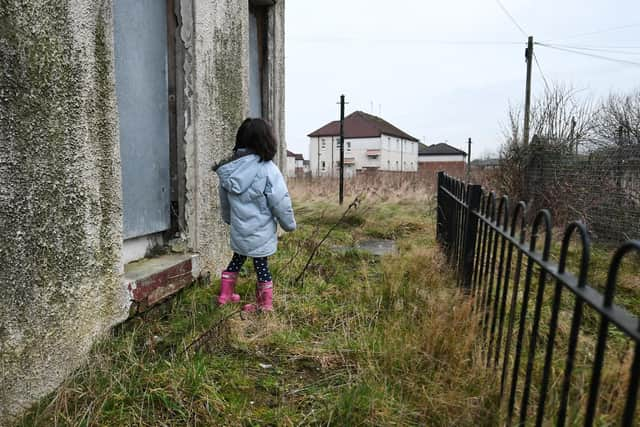Child poverty in Fife: the best and worst areas revealed in new report
and live on Freeview channel 276
An annual report has revealed the two specific areas leading the Kingdom in childhood poverty and the two beating the odds.
Mike Enston, Fife Council’s executive director of communities, presented the annual poverty and prevention report to Fife’s Partnership Board on Thursday.
Advertisement
Hide AdAdvertisement
Hide Ad“Our ambition is to be better than the national average but it’s actually going the other way around at the moment,” he said. “What is that telling us - that we’re not doing enough? Maybe it’s simply telling us that we’re up against one of the most challenging cost of living crises in a long time. That’s bound to have an impact. Regardless, it’s important to acknowledge where we are.”


The latest poverty data suggests that 23.2% of children in Fife are living in relative poverty before housing costs - 18.5% are living in absolute poverty.
“This is above the national average at 21% and 16.5%, respectively,” Mr Enston’s report stated.
Tay Bridgehead and St Andrews led the way with the lowest rates in Fife with only 12.7% and 11% of children living in relative poverty.
Advertisement
Hide AdAdvertisement
Hide AdBuckhaven, Methil and Wemyss Villages were ranked the worst in Fife - a shocking 34.4% of children in this region live in relative poverty. Lochgelly, Cardenden and Benarty were not far behind with 33.3%.
“The breadth of activity undertaken in the reporting year is substantial. Despite this, poverty remains persistent,” a report to the board stated.
Going forward, the council will focus on individual and community empowerment as well as partnership to tackle these figures.
“Too many children in Fife live in poverty and too many people are unable to manage financially and suffer from significant insecurity and lack of control as a result. In Fife, we’ve been focusing on ensuring opportunities for all through the Plan for Fife,” the report states.
Advertisement
Hide AdAdvertisement
Hide Ad“We need to prevent crises from occurring. Too often services are on the back foot. Personalised support that takes account of individual and family needs, circumstances and strengths is key to our approach of building resilience within individuals, families, and communities.”